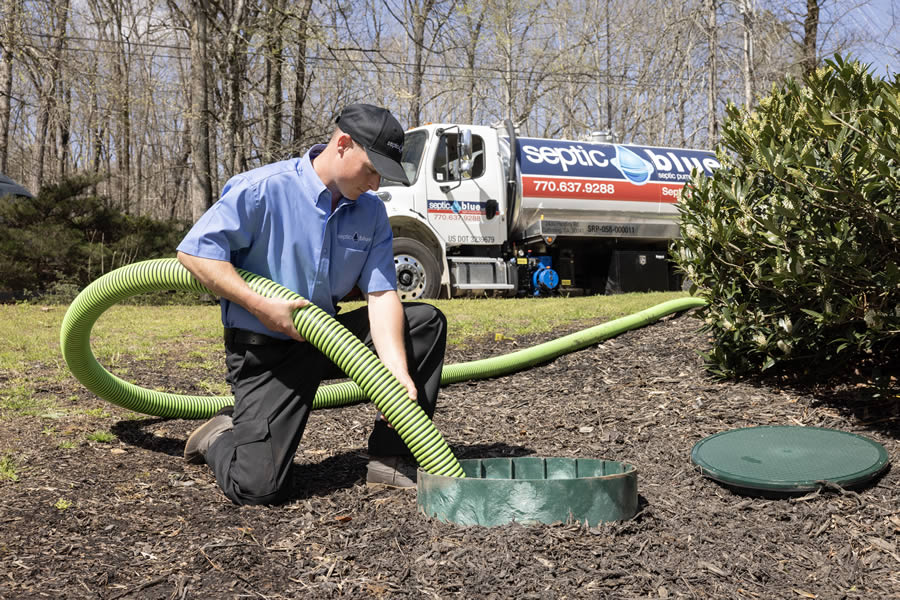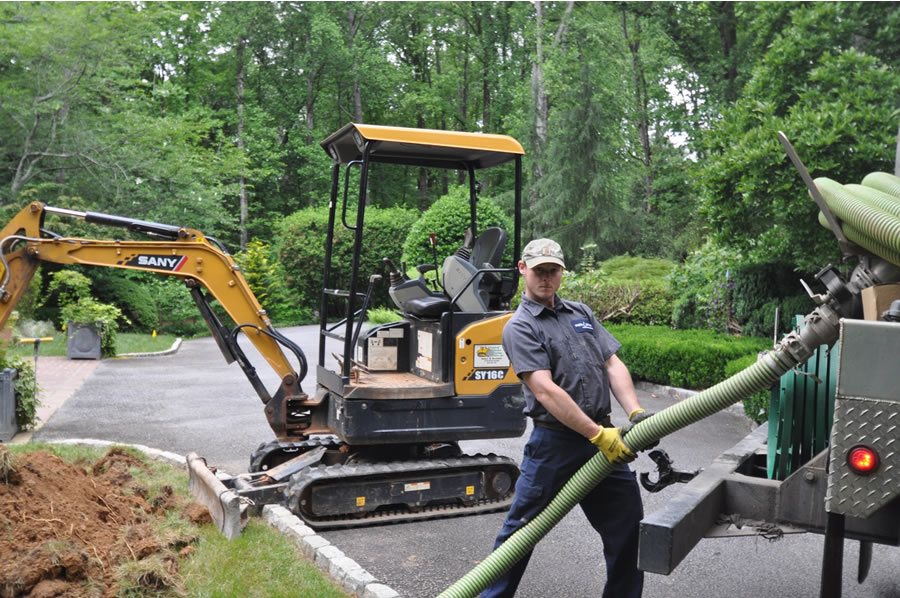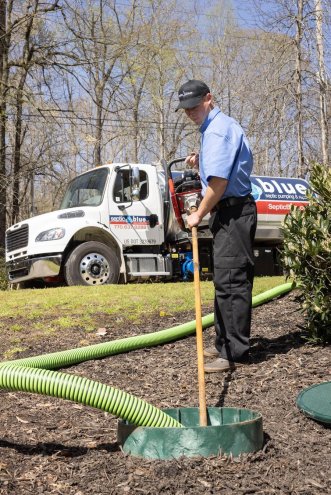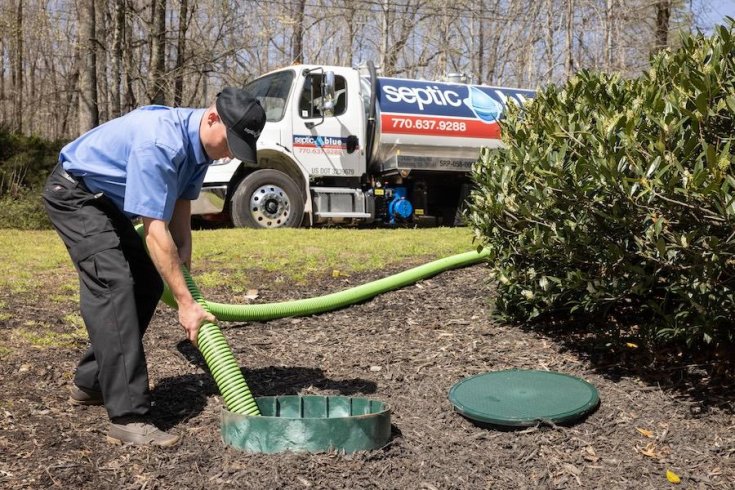Interest Free Financing Up To 36 Months
WE DO NOT ONLY PUMP YOUR TANK - WE CLEAN IT!
Multiple Financing Options Are Available Up To 36 Months
Interest Free Financing Up To 36 Months
WE DO NOT ONLY PUMP YOUR TANK - WE CLEAN IT!
Multiple Financing Options Are Available Up To 36 Months
For houses that are not connected to municipal sewage systems, septic systems are necessary. To break down waste and keep themselves functional, they depend on a delicate balance of bacteria. Homeowners frequently look for alternative items, such as essential oils, to meet a variety of domestic requirements. Nonetheless, questions are raised about the safety of essential oils in septic systems.
In this blog post, our professionals from Septic Blue of Raleigh will explore the implications of using essential oils in conjunction with septic systems and address common questions surrounding their safety and impact on septic tank installation, septic tank cleaning, repair, pumping, and overall system health.
It's important to comprehend how septic systems work before exploring the compatibility of essential oils with them. Wastewater from homes are collected and broken down by microorganisms in septic tanks. With the particles sinking to the bottom as sludge and the liquids flowing out into the drain field for additional filtration, this process separates the solids from the liquids. Any disturbance to this delicate equilibrium may result in system problems that need to be fixed or maintained by a septic company.
It's a popular misperception that essential oils can improve septic system function by encouraging bacterial growth or covering up odors. Although many oils have antibacterial qualities, the amounts needed to affect the bacterial balance in a septic tank are usually much higher than what is reasonable or safe. Furthermore, essential oils are unlikely to reach the microbial community inside the septic tank because they are hydrophobic and float on the water's surface.
Essential oils are popular for usage around the house, but adding them to septic systems can be dangerous. The natural processes in the tank may be disturbed by certain oils since they include substances that are poisonous to the microorganisms that break down waste. Furthermore, over time, essential oils may build in drain fields and contaminate the surrounding soil and groundwater. The need of utilizing essential oils prudently in homes with septic systems is highlighted by these hazards.

Septic tank pumping in Raleigh has never been so affordable and accessible thanks to the professionals at Septic Blue. We are…

One quarter of Americans rely on septic tanks to process household waste. Most Septic Blue locations have septic tank experts who…

Call Septic Blue today for a second opinion. If you choose to go with Septic Blue, you'll receive $250 off your…

If you are a homeowner or resident in Raleigh that is among the 20 percent of households in the U.S. with…
Professional Saptic Plumbing solutions for every need. Contact Us Today!
Regular septic tank pumping is essential for maintaining system functionality and preventing backups or overflows. By making sludge more viscous or causing interference with pumping machinery, adding essential oils to the system can reduce its productiveness. This may lead to insufficient removal of sediments and require more frequent pumping schedules, which may raise homeowners' maintenance expenses.
Essential oils in the system can cause complications when septic tank installation or repair is necessary. Remaining oils can cause problems for gaskets, seals, and other parts, which might cause leaks or early deterioration. Furthermore, the possibility of oil pollution of nearby soil and groundwater arises when repairs require excavation close to the drain field, raising concerns about environmental risks and regulatory issues.
It is debatable whether essential oils are compatible with septic systems, even though they might provide aromatic benefits in residential settings. When using essential oils in homes with septic systems, homeowners should proceed with caution because there may be dangers to the upkeep, environmental impact, and functionality of the system. The lifetime and effectiveness of these crucial home systems depend on prioritizing best practices for septic system care, which include regular maintenance, appropriate waste disposal, and restricted use of potentially disruptive substances.

A septic system is designed to move wastewater efficiently from your home into a tank and then into the drain field.…
.webp)
Even if it often fades into the background of daily life, a septic system plays a critical role in keeping your…

Septic systems play a critical role in protecting your home, health, and surrounding environment. Unfortunately, they're often misunderstood as systems that…

A well-maintained septic system supports daily life in ways that are easy to overlook, from dependable drainage to a healthy home…